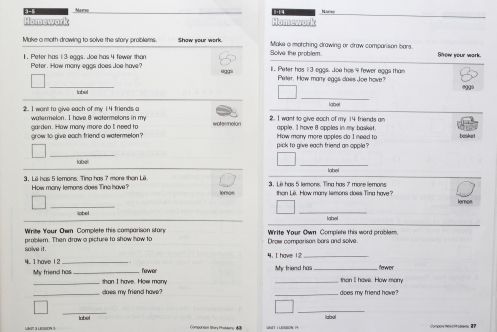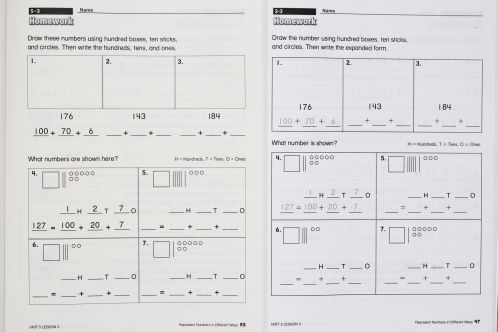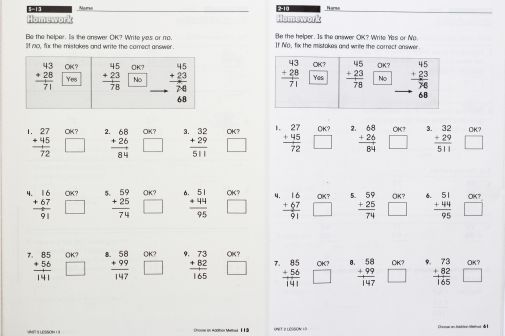
The new school year is now a month old. By this time, most children who attend a public K-12 school in the US will have experienced the new Common Core State Standards in Mathematics (CCSSM). On the one hand, IMACS is pleased to see that key elements of the teaching philosophy we have lived by for more than 20 years are reflected in the Common Core Standards for Mathematical Practice. For a variety of reasons, however, we maintain a healthy amount of skepticism about whether the implementation of the CCSSM will lead to meaningful, positive change in mathematics education, particularly for our most talented youth.
Common Core Was Not Designed for Gifted Kids
First, the CCSSM was not designed with exceptional kids in mind. The official Common Core Web site states plainly that:
“The Standards set grade-specific standards but do not define the intervention methods or materials necessary to support students who are well below or well above grade-level expectations.”
[Source: https://www.corestandards.org/Math]
The Web site further acknowledges that Common Core, like its predecessors, cannot adequately address the unique needs of individual learners:
“No set of grade-specific standards can fully reflect the great variety in abilities, needs, learning rates, and achievement levels of students in any given classroom.”
[Source: https://www.corestandards.org/Math]
As to what educators should do about serving the diverse needs of a student body, Common Core guidance leaves them with unresolved internal conflict, offering both:
(i) “Learning opportunities will continue to vary across schools and school systems, and educators should make every effort to meet the needs of individual students based on their current understanding.”
[Source: https://www.corestandards.org/Math/Content/introduction/how-to-read-the-grade-level-standards]
and
(ii) “The Standards should be read as allowing for the widest possible range of students to participate fully from the outset, along with appropriate accommodations to ensure maximum participaton (sic) of students with special education needs.”
[Source: https://www.corestandards.org/Math]
[Note that Common Core does not include gifted children as an example of “students with special education needs.”]
But children in the right-hand tail of the distribution do have special education needs. Whether due to a failure to understand this fact, budgetary pressure, or some other constraint, some school districts seem to be latching on to (ii) above, using the arrival of Common Core as a reason to reduce or eliminate services or accommodations for gifted students. Should this become a national trend in education policy, our country will surely suffer as the majority of gifted children who rely on public education are left without appropriate alternatives.
What About Creative Problem Solvers?
Notwithstanding the potential for improving the thinking skills of typical students, the CCSSM are simply not built to inspire or nurture the creative problem solver. The unfortunate embracing of computerized testing as a cheap means of measuring “learning” — consequently resulting in a culture of teaching to the test — has made the K-12 classroom a place to dread for many unique thinkers. The plan to continue use of computerized testing under the new standards suggests that the non-standard thinker may still be out of place in the Common Core classroom.
IMACS recently asked Gerald R. Rising, SUNY Distinguished Teaching Professor Emeritus at the University at Buffalo, how he thought the CCSSM would affect mathematics education for bright children, to which he replied, “Any imposed curriculum can have a depressing effect on special programs for gifted students.” He also shared the following anecdote about the limits of standardized testing:
“On one of the tests appeared the trivial-sounding question that went something like this: ‘A workman seeks to pass a 20-foot long board through an opening with rectangular 6-foot by 8-foot cross-section. What is the maximum width of the board that is possible?’ The answer choices were: 8 feet, 9 feet, 10 feet and 11 feet. Several of our students answered 9 feet, because the board would necessarily have some thickness that would prevent a 10-foot wide board from passing through the opening. They lost full credit for thinking that was perfectly reasonable but that did not fit the professional test constructor’s overly simplistic model.”
IMACS has been delivering courses and administering tests online to bright and creative children for over 15 years, so we know a thing or two about designing effective computerized assessments of high-level thinking skills. Let’s just say that it takes tremendous creativity, foresight, and a deep understanding of how to leverage the power of technology. If high-stakes testing is here to stay, as it appears to be, we sincerely hope that the consortia working on Common Core-aligned assessments will find ways to reward (or at least not penalize) creative problem solvers.
Inadequate Investment in Training
Common Core marks a major change in teaching philosophy for math education in the US. The intent is to move away from just teaching procedural skills by giving equal weight to conceptual understanding. Teaching math with an emphasis on thinking and understanding, however, is not something one becomes proficient in after a few hours of training, which is all that many districts have provided to their teachers.
Such a radical shift in mindset can be especially challenging for some who have taught math with a completely different focus for many, many years. This is not to say that teachers are incapable of learning to teach a new way — quite the contrary. But, as with any field undergoing fundamental change, extensive training and professional development are necessary if districts and schools want a successful implementation of Common Core. So far, the evidence suggests that they cannot or will not be making that investment.
“Common Core” Textbooks In Name Only
Many of the textbooks currently on the market that say they are aligned to the Common Core standards were developed before the creation of the CCSSM. Note the example below of pages from old and new versions of a math text currently being used in California. The pages on the left were from the edition published in 2009, the year before states began adopting the CCSSM. The pages on the right are from the current edition that proclaims “Common Core” on the cover. (Click on an image to enlarge.)
Furthermore, such textbooks often only align to the specific content skills listed in the CCSSM rather than subscribing to the overall philosophy of the CCSSM. Many that claim to be aligned to the CCSSM do not include problems or tasks that involve the higher-level thinking skills that are supposed to be measured by the new Common Core standardized tests being developed.
Awareness and Advocacy Are More Important Now Than Ever
What does all this mean if you are the parent of a talented child? Probably more work for you. Just over a month ago, nearly two-thirds of respondents to a poll on education said they had never even heard of Common Core! So, if you’re thinking that someone else will speak up first, don’t count on it. Advocacy for a gifted student has never been easy given the lack of awareness and amount of misinformation about their unique educational needs. With the potential for Common Core to bring more harm than good to the education of exceptionally bright kids, it is more important now than ever to be heard.












It is so sad to keep reading about the “common Core Curriculum” on so many Gifted websites as if it is the new plague.
Get a grip policy makers, educators, parents and Gifted Individuals everywhere …. The Common Core Curriculum is just, a CORE curriculum. Surprise, surprise, all grades in public schools have followed a “basic curriculum” for decades, the only difference now, is that instead of their being 50 different state levels, an attempt has been made to provide some level setting basic curriculum for ALL states to follow. The purpose was and is to solve for the student who moves from a “quality” state to a state that previously did not have as robust of a a curriculum stds. (I can personally attest to the fact that the education that my own daughter received in NJ was far superior to the one afforded to her in FL since May 2012).
That being said, since the Core Curriculum is just another name for “Basic Curriculum”, Gifted children & Children with Learning challenges will face the same challenges that they always have. For children with Learning challenges, an appropriately developed IEP should address specific concerns.
For the Gifted Learner – Parents must work within their own state specific framework, first having their child identified as Gifted, then advocating for the most appropriate modifications based on their child’s unique gifted characteristics, learning abilities and demonstrated abilities.
For both groups their is a spectrum, to be the best advocate for your child, remember – your child is not just part of the gifted group, but a unique individual. If you do not use your advocacy during the IEP, EP or whatever state established term for providing an individual. Gifted Learning Plan – no on else will.
As for the Common Core, remember it is basic curriculum, for many Gifted Learners, advocate as before…. If your child excels at Math, then most likely the Common Core will be. Bore, they need differentiated education, also don’t be afraid to ASK for Differentiation in all subjects if that is what YOUR child needs.
So please Gifted community, I implore you to put the Common Core into its most basic perspective, so that Gifted Parents, Educators and Policymakers stop wasting so much time talking about a non-event, and get back to focusing on how to really help our Gifted Children excel!
@Eileen G. – Thank you for your thoughtful reply. With respect, the implementation of Common Core is not a “non-event” for those families whose advocacy efforts just got a lot harder because their school district is now pointing to the new “rigorous” standards as a reason to no longer provide an appropriately challenging education to their gifted child.
Yes, I am aware of the argument being made. However, my point is that, for all of us on the Gifted side of the equation, there has been far too much time and effort wasted discussing the the Core Curriculum as something that will in and of itself harm gifted Learners.
Instead, far more effort should have been put on refocusing the NEA that the Common Core is merely curriculum at its core, being revised. That teachers must teach the Core to all, but that the school systems still need to address students who have Disabilities, whatever they are AND Gifted Learners as well.
Curriculum has changed in the past. We must not allow administrators and educators to lose site of this, and to use this as an excuse.
I absolutely hear what you are saying. I believe now is the time for some serious changes in the school systems with administrators and educators who hold such a rigid belief. How many talented teachers and administrators have been displaced from high historically high performing states? This should be the wake up call to lazy, and out dated modality of thinking that “gee we have new core curriculum so that is all we can teach”. Oust, those people and hire the educators who want to teach to the highest level, and not fives every change as “the sky is falling”
Again, I truly respect your opinion, after sitting through several meetings with the Director of Gifted Services for Hillsborough County, FL (3rd largest school district in the state), and I quote, “No, the teachers cannot individually accommodate through acceleration for your daughter. She is in the Honors classes. The teachers are too busy teaching the the “core curricilum”, and that is challenging enough. Those ideas of acceleration, compacting, and things like that were pie in the sky notions thought up way before we had to address the Core Curriculum.”
Yes, that is a quote from my daughter’s year end IEP meeting. (BTW even with her present she still never realized that that, despite my stating in writing and verbally for more than one year, they failed to draft an EP plan for my daughter!
Trust me I get it. I just want to get the Gifted Advocacy groups not to also feed into this sad mindset as well. I am advocating for parents and the various Gifted Groups to unite to begin educating the educators that the Common Core Standards are just anew set of Core Curriculum. Period. Gifted Education must continue, just as education for those with disabilities/ special learning needs.
I urge you to respond back: Yes, I do expect my child will need to know the core curriculum, just like every other year. But I am here to discuss my child’s Individual Gifted Learning Needs, not the whole class….
Hope this helps.
@Eileen G. – IMACS is glad to hear that you are so involved in gifted advocacy. Thank you. We hope that sharing your experience and advice will encourage other parents to become more involved as well.
The article touches on some of the many problems we have implementing standards.
1) Important goals which are difficult to measure are not included in the standards.
2) As time passes, some people come to believe that the published standards are really all that we care about.
3) As time passes, some people come to believe that it is unfair to assess students on anything that is not in the standards.
4) Aware that they are being assessed based on student success, some teachers teach to the standards.
5) Aware that their publications are being assessed based on student success, most publishers tailor their publications to the standards and remove any impediment to student success that is not a stated standard. Especially perilous is their tendency to remove as many prerequisite knowledge requirements as they can get away with.
Common Core will further exclude gifted students from realizing potential. Many will not be noticed and encouraged as was Bill Gates in school by an eighth grade teacher. These are children and cannot be expected to advocate for themselves. Many will have incapable parents and possibly teachers who do see that they are noticed and challenged appropriately. Gates, has got it wrong here. Common Core will deny exceptional students the opportunities he had. What a waste of intelligence. Maybe, against the odds he will have to overcome, an exceptional student overlooked by common core, will develop and support a plan so much better than common core.